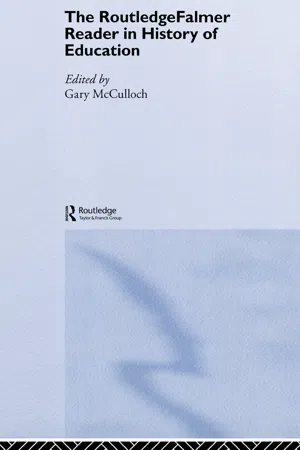Dr. Kettle, the vigilant President of Trinity College, Oxford, said that the great arcanum of government... was to keep down juvenile impetuosity.
Introduction: the functions of a university
Presidents, Vice-Chancellors and Principals of major universities usually tell the world that the institutions over which they preside have two functions and only two: first to advance the frontiers of knowledge by the pursuit of original research; and second, to convey a prescribed body of knowledge to undergraduates either in the form of a so-called liberal arts and sciences curriculum for general educational development, or specialised training for a particular profession or occupation. In fact until recently only the liberal arts aspect of this prospectus has ever been a part of the official agenda.
The phrase ‘liberal arts’ is to us today something of a misnomer, since the word ‘liberal’ has fundamentally changed its meaning over the centuries. Today, by a liberal education we mean a study in breadth rather than depth, of a wide range of subjects, and a deliberate encouragement of autonomous thought and judgement. An open mind, in theory at least, is the end product of the liberal education of today.
Until very recently, however, the liberal arts and sciences served no such function. On the contrary, their purpose was careful indoctrination in right thinking, based on the study of a very narrow range of materials. For centuries, all knowledge was thought to be embodied in the classical texts, and all wisdom in them and the Bible. Innovation was therefore the last thing a university should be concerned with. At Cambridge in 1824, for example, the object was defined as turning out ‘an annual supply of men whose minds are... impressed with what we hold to be the soundest principles of policy and religion’. Innovation was especially to be resisted in religion since ‘the scheme of Revelation we think is closed’ (Rothblatt, 1974: 292). All that was required, therefore, was to teach those old and established principles which were beyond the reach of argument. Thus the examination in ethics was dropped since it allowed too much scope for controversy. In my own university, Princeton, in 1854 President MacLean in his inaugural address announced firmly ‘we shall not aim at innovation. No chimerical experiments in education have ever had the least countenance here’. In fact, however, President MacLean was wrong, and was merely reflecting a conservative and didactic trend which had set in again in about 1800, after half a century in which Enlightenment ideology had opened a window to allow some fresh air into the stuffy and authoritarian atmosphere of the Renaissance university. In 1760, President Samuel Davies of Princeton had written:
In the instruction of youth, care is to be taken to cherish a spirit of liberty and free enquiry; and not only to permit, but to encourage the right of private judgment, without presuming to dictate with an air of infallibility, or demanding an implicit assent to the decisions of the preceptor.
(Schmidt, 1957; Princeton, 1978)
Thus over the centuries the self-image of the university has fluctuated wildly between that of an authoritarian dictator of established wisdom in religion, politics, philosophy, morals and all academic topics, to that of an intellectual liberator which has deliberately set out to encourage a spirit of free enquiry. The latter periods have, however, historically been few and fairly short.
Nor has learning always been the prime aim of university education in the past, which is why there were no regular and serious examinations before the late eighteenth century, and only about half the students took degrees. In the late seventeenth century, when John Locke wrote his highly popular and influential book on education, he defined as its first priorities the inculcation of virtue, wisdom, and good manners. ‘I put learning last’, he said (Locke, 1968). I hope I do not shock you when I say that I think Locke was right. These educational ideals are a far cry from the virtual abandonment at Oxbridge today of attempts to inculcate virtue, wisdom or good manners, and the intensive concentration on a single narrowly specialised field of study throughout a student’s university career, in preparation for an examination in the very latest research minutiae on this single topic. In Scotland, something of the older ideal of a broad-based education still prevails, as indeed it does in America, although few faculty today would dare to admit to be attempting to inculcate virtue, wisdom or good manners.
If the patent functions of the university are therefore far from immutable and agreed upon, the latent ones are virtually ignored. A central - perhaps the central one of these has been the difficult task of keeping adolescents out of mischief at their most impossible age, when they are most likely to run wild. These disciplinary problems are happily shifted by the parents to the university faculty and administration, who are supposed to act in loco parentis.
There are also other latent functions, often conflicting ones, which I will only touch on. One is to provide a new generation of elite with those skills and values deemed necessary for future leadership roles, and to allow these elite to make influential friends and contacts who will come in very useful in later life. In this respect, great universities are instruments of hierarchy and social stasis. On the other hand, they also serve to open up channels of upward social mob...
